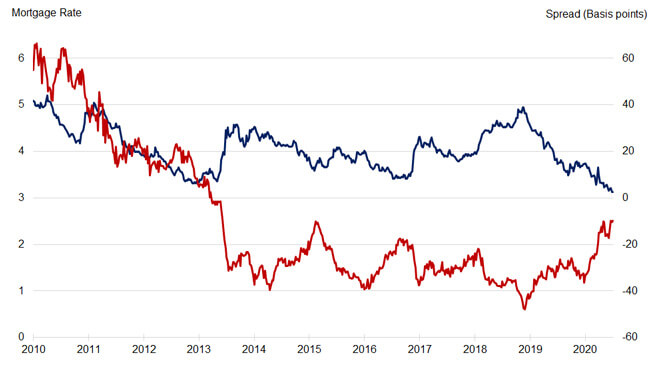Is a Jumbo Loan Right for You? Check out the Benefits and Demands
Is a Jumbo Loan Right for You? Check out the Benefits and Demands
Blog Article
Navigating the Jumbo Car Loan Landscape: Crucial Insights for First-Time Homebuyers
Navigating the complexities of big financings provides a distinct set of challenges for novice buyers, specifically in an evolving realty market. Recognizing the vital qualification demands and prospective advantages, alongside the disadvantages, is important for making notified decisions. Furthermore, creating a solid monetary approach can substantially enhance your prospects. Engaging with specialists in the field can illuminate paths that may initially seem discouraging. Yet, as you explore these intricacies, it ends up being clear that a deeper understanding can disclose opportunities that might or else be ignored. How can you ideal position yourself for success in this specialized section of loaning?
Comprehending Jumbo Finances

Since big finances are not backed by government-sponsored entities, they bring various underwriting criteria and need more comprehensive economic documentation. This difference can bring about greater rate of interest prices compared to traditional loans, offered the increased risk to lenders. Nonetheless, jumbo financings additionally provide special advantages, such as the ability to fund higher-value homes and possibly a lot more adaptable terms.
New buyers must additionally realize that protecting a big loan frequently necessitates a larger deposit, usually varying from 10% to 20%. In addition, customers are typically anticipated to demonstrate solid credit reliability and a secure income to qualify. When discovering jumbo lending options in their search of homeownership., understanding these subtleties can equip novice buyers to make enlightened decisions.
Eligibility Needs
Securing a jumbo car loan needs meeting particular qualification needs that differ significantly from those of standard finances. Unlike traditional loans, which are usually backed by government-sponsored entities, big fundings are not insured or ensured, causing stricter criteria.
Furthermore, debtors should show a durable financial account, which consists of a reduced debt-to-income (DTI) ratio, generally no higher than 43%. This ensures that borrowers can handle their regular monthly payments alongside various other economic commitments.
In addition, the majority of lenders require substantial paperwork, including evidence of earnings, possession statements, and income tax return for the past two years. A substantial down payment is additionally essential; while traditional loans may allow deposits as low as 3%, big lendings commonly necessitate a minimum of 20%, depending on the funding and the loan provider amount.

Benefits of Jumbo Car Loans
For several new homebuyers, jumbo loans use distinct advantages that can facilitate the journey toward homeownership. Among the key benefits is the ability to finance residential or commercial properties that surpass the adjusting car loan limitations set by government-sponsored entities. This adaptability makes it possible for purchasers to access a larger variety of high-value homes in competitive real estate markets.
In addition, jumbo finances frequently feature attractive rate of interest rates that can be lower than those of standard finances, specifically for borrowers with strong credit scores profiles. This can lead to substantial savings over the life of the loan, making homeownership more budget-friendly. Moreover, big fundings usually enable for greater lending quantities resource without the demand for private mortgage insurance policy (PMI), which can even more reduce month-to-month repayments and overall prices.

Possible Downsides
Numerous possible homebuyers might locate that big lendings come with substantial drawbacks that necessitate careful factor to consider. One of the main worries is the stringent certification standards. Unlike adhering lendings, big lendings typically need greater credit history, frequently surpassing 700, and substantial revenue documentation, making them less accessible for some consumers.
Additionally, big financings typically come with greater rates of interest contrasted to traditional financings, which can lead to increased monthly repayments and overall borrowing costs. This costs may be especially troublesome for newbie property buyers who are currently navigating the financial complexities of purchasing a home.
Another noteworthy downside is the larger down payment demand. Numerous lenders anticipate a minimum down settlement of 20% or more, which can position an obstacle for purchasers with limited financial savings. The lack of federal government support for big car loans leads to less desirable terms and conditions, increasing the threat for lenders and, as a result, the loaning costs for house owners.
Last but not least, market changes can substantially influence the resale worth of premium properties financed with jumbo loans, adding an aspect of economic unpredictability that new property buyers may locate daunting.
Tips for First-Time Homebuyers
Navigating the intricacies of the homebuying process can be overwhelming for novice buyers, especially when thinking about big car loans (jumbo loan). To simplify this journey, sticking to some vital approaches can make a substantial difference
First, inform yourself on jumbo car loans and their certain demands. Recognize the various financing requirements, consisting of credit report, debt-to-income proportions, and deposit assumptions. Normally, a minimal credit history of 700 and a deposit of at the very least 20% are crucial for approval.
Second, involve with an experienced home loan specialist. They can offer understandings customized to your financial scenario and help you navigate the details of the big view funding landscape.
Third, think about pre-approval to reinforce your purchasing placement. A pre-approval letter signals to vendors that you are a severe customer, which can be advantageous in open markets.
Lastly, do not overlook the relevance of budgeting. Factor in all expenses connected with homeownership, including real estate tax, maintenance, and home owners' insurance coverage. By adhering to these pointers, novice official site purchasers can approach the jumbo finance process with higher confidence and quality, enhancing their possibilities of effective homeownership.
Conclusion
In conclusion, navigating the jumbo lending landscape needs an extensive understanding of eligibility criteria, benefits, and potential drawbacks. Ultimately, detailed prep work and education and learning relating to jumbo car loans can lead to more informed decision-making in the homebuying process.
When navigating the complexities of the housing market, understanding big lendings is essential for first-time buyers aiming for properties that surpass traditional financing limits. Big car loans are non-conforming finances that commonly surpass the conforming loan limitation set by the Federal Housing Money Firm (FHFA)In addition, jumbo loans often come with eye-catching interest rates that can be lower than those of typical car loans, particularly for customers with solid credit history accounts. Big loans usually permit for greater car loan quantities without the need for private mortgage insurance coverage (PMI), which can additionally decrease monthly payments and general costs.
Unlike adapting lendings, jumbo loans typically call for higher credit history ratings, often surpassing 700, and substantial revenue documentation, making them much less obtainable for some customers.
Report this page